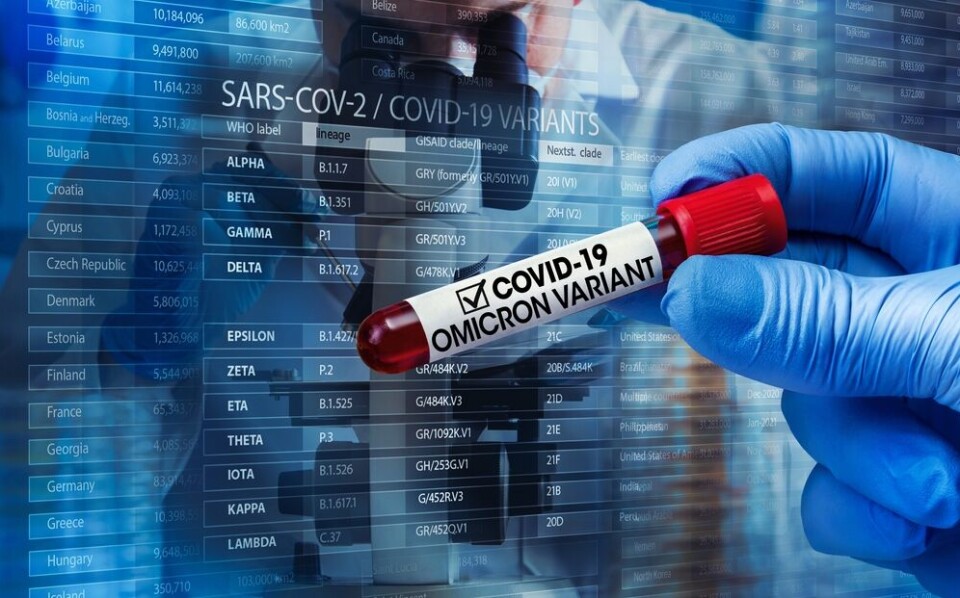-
Britons are the largest foreign community of second-home owners in Nouvelle Aquitaine
See which other departments in the region are popular with British nationals
-
Travellers risk extra costs under new Eurotunnel ticket rule
Some fare options are less flexible and less forgiving of lateness
-
May will be difficult month for train travel in France, warns minister
Two major train unions are threatening to strike and are ‘not willing to negotiate’, he says
New Omicron variant: PCR and isolation for arrivals to UK from France
All arrivals regardless of nationality, vaccination status or country of departure – including France – must take a PCR test on Day 2 and self-isolate until they receive a negative result

New measures to combat Omicron, the new Covid variant dubbed ‘of concern’ by the WHO, are to be introduced in the UK, including requiring all international arrivals to take a PCR test and self-isolate.
All international arrivals, regardless of vaccination status or country of departure, must take a PCR test on Day 2 of their arrival in the UK, and must self-isolate until they receive a negative result.
Results can take at least 24 hours, and sometimes longer, to come back.
The rules will come into force from 04:00 on Tuesday, November 30.
The measures apply to fully vaccinated people and the non-vaccinated.
COVID UPDATE: All international arrivals entering England must take a day 2 PCR test and self-isolate until they receive a negative result. pic.twitter.com/BuQcUzkFMb
— UK Prime Minister (@10DowningStreet) November 27, 2021
All contacts of suspected Omicron cases must also self-isolate, regardless of vaccination status.
The measures will last for at least three weeks and be reviewed then.
Two cases of the new variant have been identified in the UK so far – one in Chelmsford, Essex; and another in Nottingham. Both cases were connected to recent travel from South Africa, where the variant is spreading rapidly.
UK red list
The UK has also reintroduced a red list.
From 04:00 this morning (Sunday, November 28), the UK implemented a new red list, comprising South Africa, Botswana, Lesotho, Eswatini, Zimbabwe, Namibia, Malawi, Mozambique, Zambia, and Angola.
UK and Irish residents who have arrived in the UK from these countries in the past 10 days are required to isolate in a government-approved hotel for 10 days. They will be required to book and pay for this.
Non-UK and non-Irish residents who have been in the countries of Malawi, Mozambique, Zambia or Angola in the previous 10 days will now be refused entry to England.
UK Health Minister Sajid Javid said: “We will do all we can to protect the UK public against this emerging threat and that is why we are surging testing capacity to the impacted communities and introducing travel restrictions...We will not hesitate to take further action if required.”
No cases so far in France
So far, no cases of Omicron have been detected in France.
On November 26, the World Health Organisation (WHO) classified Omicron as a ‘Variant of Concern’ (VOC), meaning it has the potential to have a higher degree of transmissibility, harmfulness, or resistance to Covid treatments, including vaccines.
It is the fifth variant to be classified as such, after Alpha, Beta, Gamma and Delta, the latter of which makes up the vast majority of cases in France.
“This variant has a large number of mutations, some of which are concerning. Preliminary evidence suggests an increased risk of reinfection with this variant, as compared to other VOCs,” the WHO wrote in a statement on Omicron.
“The number of cases of this variant appears to be increasing in almost all provinces in South Africa,” it added.
French government health agency Santé publique France stated yesterday that knowledge about the variant is “still incomplete” and it is working to develop it further.
Related stories
Omicron: Zero cases of new Covid variant of concern in France so far
French Minister: Detection of Covid Congo strain shows tracking works
Covid France: Infection rate surges among children aged six to ten
New French study reveals places where Covid infections most likely
























